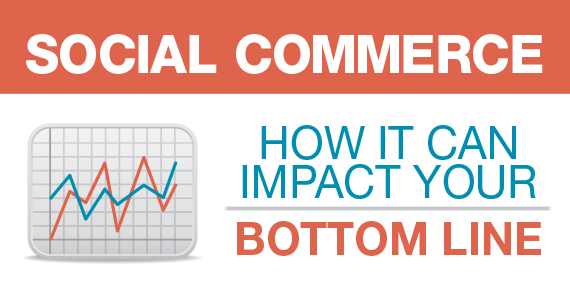 Social media and e-commerce … it sounds like a match made in online heaven. What could be more enticing to the socially plugged-in than shopping from a storefront right on Facebook?
Social media and e-commerce … it sounds like a match made in online heaven. What could be more enticing to the socially plugged-in than shopping from a storefront right on Facebook?
But social commerce didn’t draw in hordes of customers as the experts predicted. After a dismal 2012, many major brands shuttered their Facebook shops; indeed, IBM’s Black Friday report indicated that less than 1 percent of holiday traffic came directly from Facebook. Ouch.
Is it the end of the story? For small businesses – like yours – it may not be. E-commerce expert, Sucharita Mulpuru, a vice president and principal analyst at Forrester Research, noted, “very small businesses are the few that have some traction on Facebook.” This a-ha moment confirmed what many analysts and business owners already knew: Social commerce may have been a bust for the big guys, but the door is still open for smaller e-commerce businesses.
Encouraging Numbers
Despite the grim oulook overall, social commerce numbers in the 4th quarter of 2012 told a different and more encouraging stort for small businesses. The numbers may look small, but they’re far from insignificant!
Ecwid-powered Facebook storefronts showed sales growing 65 percent over the previous quarter. In addition, merchants with websites and Facebook storefronts reported, on average, 10 percent of sales coming from Facebook, and clicks from Facebook to the website accounting for 8.5 percent of eventual holiday sales. Clearly, this is the ground floor for social commerce – but signs show the trend is slowly but surely picking up steam.
That Personal Touch
So why are the little guys winning in this race? The answer may lie in the power of relationships.
The intensely personal nature of social commerce lends itself to the level of service found in small businesses. Conversations and inbox messages are second nature to small-business owners, who get that selling on social media platforms is a people-to-people business.
Merchants who have performed well on social commerce platforms report that their interactions on Facebook are every bit as important as they are with physical customers in traditional stores. In addition, these merchants pay attention to where the shoppers are. If they are mobile and spending time on Facebook, Pinterest and other social sites, they know they need storefronts straddling traditional websites and media.
What Do You Need to Do?
It’s early in the game, but if you aren’t already paying attention to social commerce, now’s the time to start.
- Keep an eye on your colleagues – and competition. Watch what small e-commerce businesses like yours are doing, particularly those run by younger owners who are very much in tune with trends in social media. If they have Facebook pages, “like” the sites so they show up in your own feed, but also make sure you visit their pages separately and read the public conversations between seller and buyers. Learn the approach and tone that invites communication and makes for strong bonds.
- Make it easy for shoppers to shop from wherever they’re browsing. Think of it as Starbucks – where you’re never more than a few blocks away from your favorite latte! If your buyers are on Facebook, reduce the number of clicks it takes for them to hit “buy” with a Facebook storefront.
- Recognize the many shades of social commerce. Sales don’t have to be made on Facebook in order for social media to have influenced or closed the deal. Use the analytics available from Facebook and Google to track where and when your customers are visiting, especially in relation to sales.
Savvy business owners know to be on the cusp of innovations and trends. Give it a little time, and you may soon find that keeping a watchful eye – and open mind – on social commerce could bump up your business for the better.
 About the Author: Jim O’Hara of Ecwid
About the Author: Jim O’Hara of Ecwid
Ecwid President Jim O’Hara has over 25 years of experience leading enterprise technology companies to high growth by penetrating new vertical, geographical and partner markets. Currently, O’Hara is leading the global expansion for Ecwid’s fast-growing, cloud-based store building software. You can learn more about Ecwid here: http://www.ecwid.com/





